oceanography
March 11, 2025
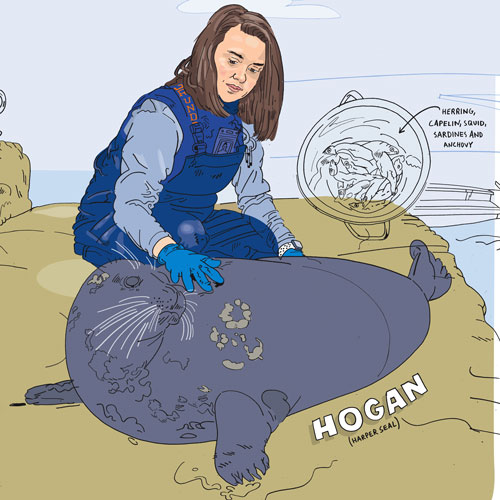
Aquarist extraordinaire
Now a supervisor of birds and mammals with the Seattle Aquarium, Aubrey Theiss took an unconventional path to her dream career.
May 29, 2023
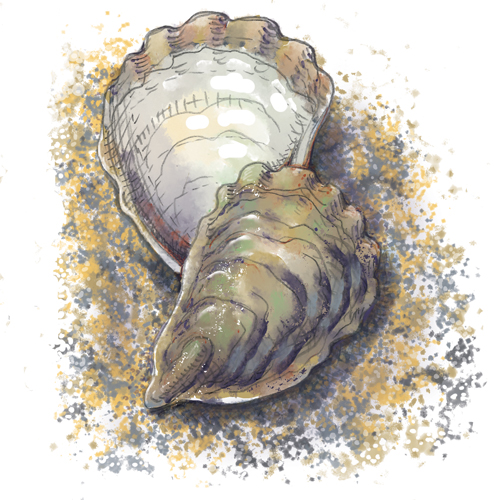
Coastal meets celestial
While some universities boast of their land grants, the UW is where you’ll find cutting-edge research and education on sea and space.
May 28, 2023
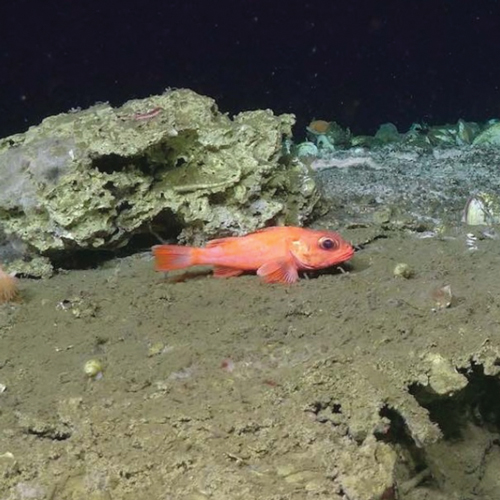
Seeps from the deep
A recent UW-led study exploring the seafloor about 50 miles off Newport, Oregon, discovered seeps of warm, chemically distinct liquid shooting up.
March 4, 2021
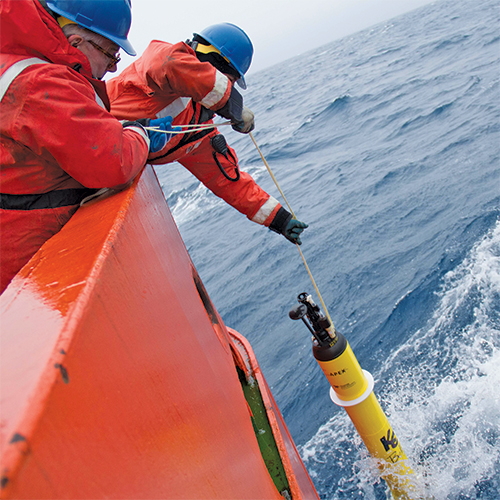
Floating robots
The UW will soon be deploying a fleet of floating robots in oceans around the world.
June 4, 2020
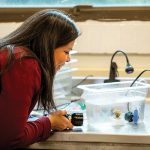
Her work spans oceans
Jacqueline Padilla-Gamiño studies issues such as global environmental change, ocean acidification and microplastics in the ocean.
December 1, 2019
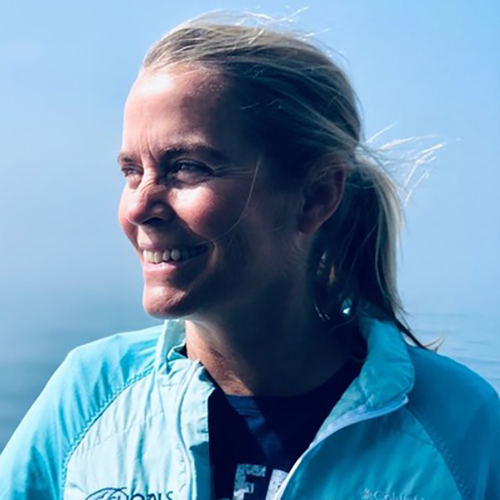
A tern for the worse
Feeding the wrong food to chicks could spell disaster for several species of terns.
September 2, 2019
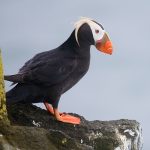
Warming sea
A die-off points to a larger-scale, longer-term problem with the food supply caused by warming seas.
June 3, 2019
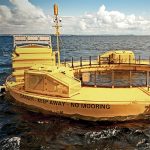
Energy’s new wave
Converting ocean waves into electricity poses challenges—and promise.
August 26, 2018
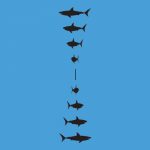
Sharks spin a tale
Great white sharks dive deep into the Atlantic’s clockwise-spinning warm-water whirlpools.
September 1, 2016
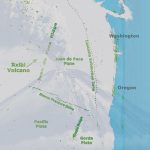
Deep data
In April 2015, the Axial Seamount, an active underwater volcano about 300 miles off the coast of Oregon, erupted. For the first time ever, scientists, engineers and students from the UW and around the world could watch it in real time thanks to an elaborate array of sensors they installed a year earlier.
December 1, 2015
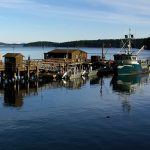
The dream lab
For more than a century, scientists and students the world over have come to Friday Harbor to learn about the future of our oceans.
September 1, 2015

High volume
Recordings by current and former UW researchers in fjords show that melting at glacier edges in the narrow rock-edged canyons are some of the noisiest places in the sea.
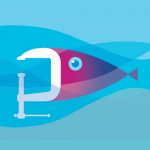
Cling like a fish
Scooting around in the shallow, coastal waters of Puget Sound is one of the world’s best suction cups. It’s called the Northern clingfish, and its small, finger-sized body uses suction forces to hold up to 150 times its own body weight.
September 1, 2014
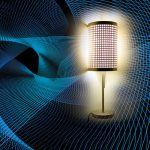
Tide turner
Tidal power holds tremendous potential, especially here in the Evergreen State, because of the sheer volume of water moving in and out of Puget Sound each day.
June 1, 2014
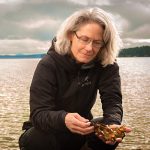
Deep into oceans
The chemistry of the ocean has changed dramatically over the decades that Terrie Klinger has been studying her beloved West Coast waters.

Robot observers
This fall the UW will complete installation of a massive digital ocean observatory. Dozens of instruments will connect to power and Internet cables on the sea floor, but the observatory also includes a new generation of ocean explorers: robots that will zoom up and down through almost two miles of ocean to monitor the water conditions and marine life above.
June 1, 2013
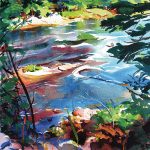
Sediment settlement
Salmon are headed upstream in the Elwha River for the first time in more than a century, but sediment—and lots of it—is headed downstream. The sediment is the result of the largest dam removal project ever undertaken.
March 1, 2012
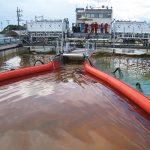
Slick job
Two UW alums who helped devise a better way to ameliorate oil spills were part of a team that won a $1 million prize for its ingenuity.
June 1, 2011

The natural
Jane Lubchenco’s ability to bring real-world approaches to scientific inquiry led her to become the first woman director of NOAA. The 1971 alumna is the recipient of the UW's highest alumni honor.
March 1, 2011
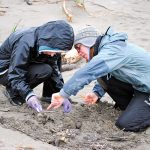
Sink to Sound
Researchers are using a new method for collecting old-fashioned data: They are employing real people—citizen scientists—to study changes in the environment.